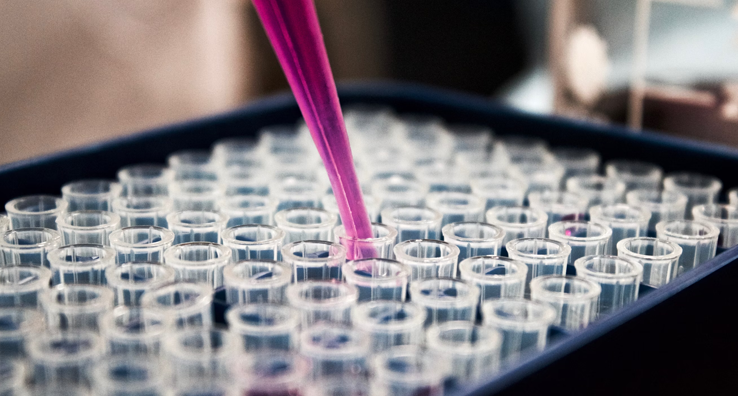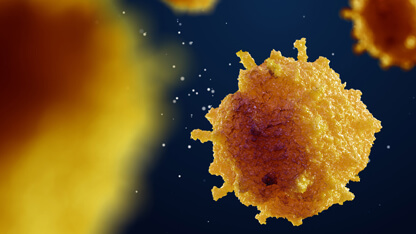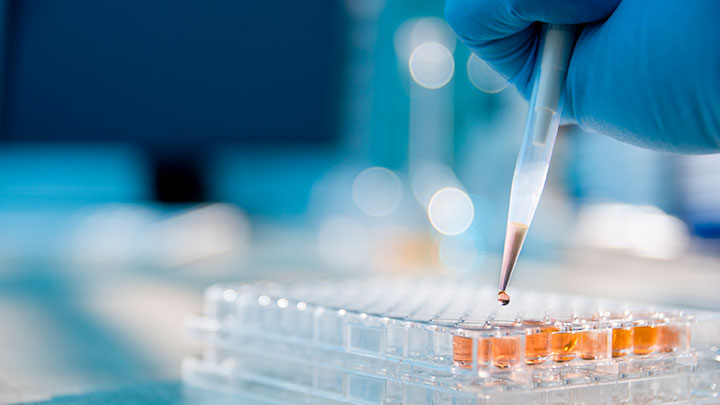Gene therapy product characterisation and release testing services supporting CMC requirements for IND applications and commercial release, including expert analysis and stability services
Regulatory requirements for gene therapy products are evolving in the EU and US currently, with some key guidance already published such as recommendations regarding chemistry, manufacturing, and control (CMC) information to be submitted in an human gene therapy Investigational New Drug Applications (INDs) (Jan 2020). There is an expectation for orthogonal analytical techniques to be applied to characterisation, stability and release testing and also to assess the quality of all components of the product including all materials and components used for manufacture of a gene therapy product such as vectors, reagents, and excipients.
Gene Therapy Characterisation Expertise
To help our clients overcome the challenges of gene therapy analytical development, which include characterisation, quality control, and the need to meet increasingly demanding regulatory expectations, we have adopted powerful, advanced analytical tools such as:
- Analytical ultracentrifugation (AUC) and cryo-TEM to determine full or empty capsids
- Next-generation sequencing (NGS) to confirm on-target/off-target effects, or to check whether a viral sequence has been correctly integrated into a cell line
- Sequencing through difficult inverted terminal repeat (ITR) regions of adeno-associated virus (AAV) can also be achieved
- Using droplet digital PCR (ddPCR) for residual DNA or viral titres
- Protein purity analysis of AAV capsids by CE-SDS, with sensitive Laser Induced Fluorescence derivatization
We can support your gene therapy development from an early stage, providing method development and validation to meet your milestone and regulatory requirements. With a heritage of supporting advanced pharmaceutical product development, coupled with a comprehensive range of analytical technology, our experts offer Total Quality Assurance expertise to help you to confirm identity and ensure the product safety, quality, purity, potency and strength of your gene therapy product.
Our solutions:
- GMP analysis
- GCP/GLP bioanalysis
- ICH stability storage and testing
- Method development and validation
- General compendial testing
- Viral vector characterisation
- Viral vector identity
- Virology assays
- Aggregation analysis
- Host cell and residual plasmid DNA
- Cell-based assays / potency testing
- QC release testing
- Advanced delivery technology analytical support
- Reagent QC analysis and residual reagent determination
- Excipient concentration and QC
- Determination of Residual proteins, DNA, RNA, cytokines, growth factors, serum, antibodies and solvents
The most common approach for delivering exogenous genetic material to cells can be achieved using a viral vector. To characterise these complex products, we deploy a diverse range of orthogonal analytical approaches in order to better understanding of viral vector critical quality attributes (CQAs). Through robust analytical assays we determine or confirm identity and assess vector productivity, vector purity, potency or biological activity and safety to meet expectations of current regulatory guidance.
Liposome Delivery Technologies
To help clients meet the requirement of the FDA CMC guidance (April 2018) for liposome drug products, our scientists provide a package of analytical services aimed at the assessment of liposome critical quality attributes (CQAs), such as physicochemical properties, lipid content/composition, encapsulation efficiency and the release of drugs from the liposome formulation which is necessary to support the submission of an Investigational New Drug Application (IND). The services also aim to establish the drug product specification through robust and accurate laboratory data.
Naked DNA
A naked vector DNA is the simplest form of a non-viral gene delivery system. The use of naked DNA has been explored particularly for cancer vaccine applications or to treat genetic diseases. Stability and integrity of the naked NDA are critical quality attributes, and at Intertek, we apply cell based potency assays to confirm stability and PCR for identity, together with techniques such as capillary gel electrophoresis (CGE) to monitor degradation of the plasmid
Our scientists provide mRNA product characterisation to support drug development. We are adept in establishing GMP validated analytical methods for quality control including measuring the size or molecular weight of the mRNA as well as spectroscopic profile and chromatographic profiles, for example, by using reverse phase liquid chromatography with mass spectrometry and capillary gel electrophoresis. Tests for mRNA integrity and impurities such as dsRNA, DNA template, nucleoside triphosphates, RNA polymerase are required to ensure purity, which can be directly linked to translation efficiency and immunogenicity. mRNA drug products also require analysis by compendial methods to test appearance, pH, osmolality, subvisible particles, elemental impurities and residual solvents. For mRNA products which involve encapsulation technologies such as liposomes or lipid nanoparticles, we determine encapsulation efficiency using a RiboGreen® Assay.
Total Quality Assurance
At Intertek, we believe in a best practice approach to supporting analytical development of gene therapies involves orthogonal techniques that are ideally, sensitive, accurate and linear over a broad range. In addition, methods should be validated appropriately to support the relevant phase of clinical development, regulatory submission requirements or to support ongoing quality control of the approved product.
Pharmaceutical News & Events
- PRESS RELEASE: Lab expansion to enhance capabilities in inhaled biologics drug development
- PRESS RELEASE: Intertek partners with CrystecPharma to advance formulation science and accelerate development for dry powder inhalers
- NEW! Blog: Optimising Quality in Pharma Supply Chains
- Determination of Particles in Pharmaceuticals - Article
- Discover our Audit Live Tool for direct access to our scheduled audits
- Extractables/Leachables Lab Tour - Request access
- Medical Device Extractables & Leachables Studies
- Glycosylation Analytical Approaches for Antibody Therapeutics
- Rapid Determination of Low/Trace Level Benzene in Pharmaceutical Excipients and Finished Products




